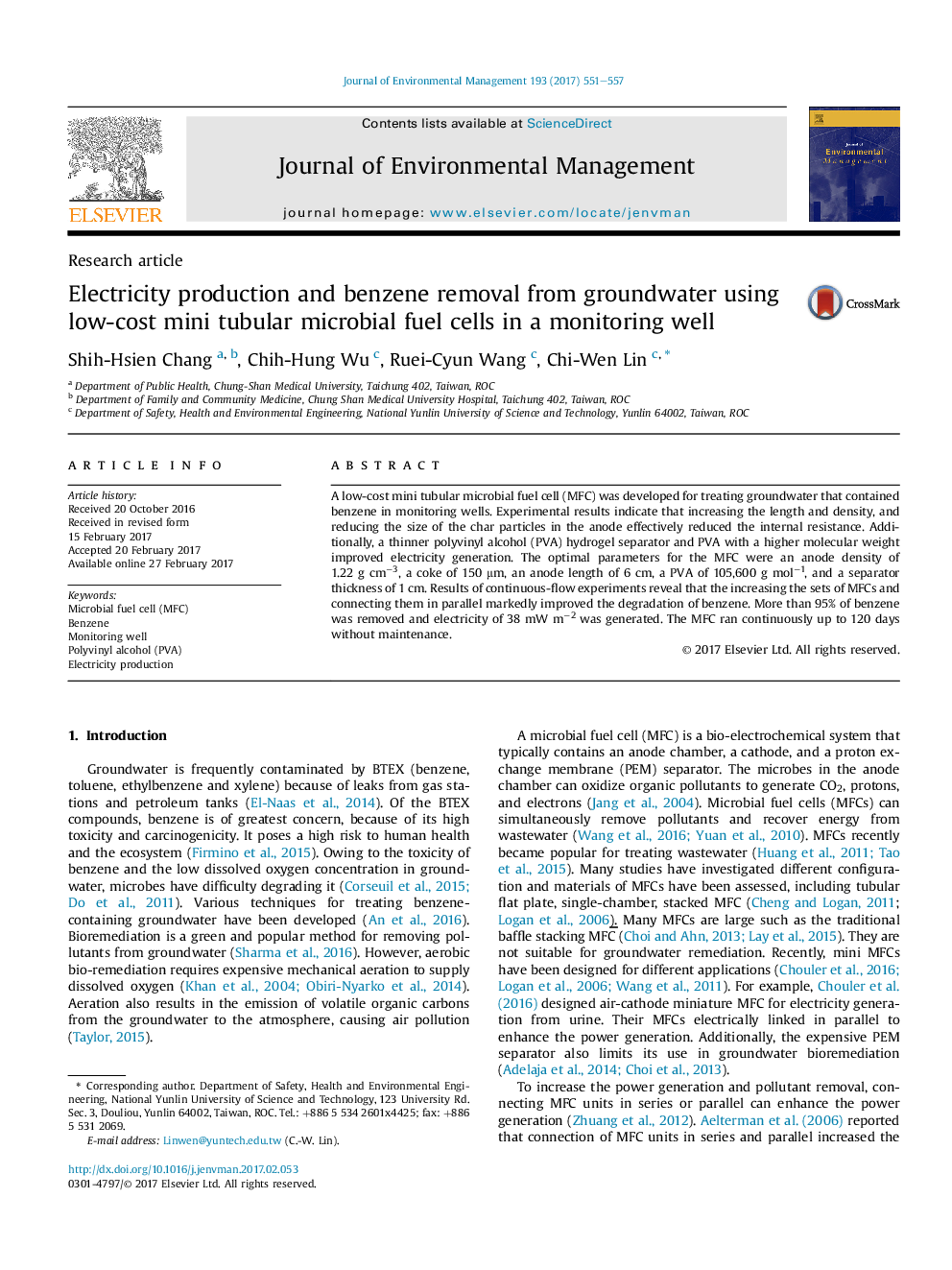| Article ID | Journal | Published Year | Pages | File Type |
|---|---|---|---|---|
| 5116858 | Journal of Environmental Management | 2017 | 7 Pages |
â¢A novel, low-cost mini MFC was developed for treating benzene in monitoring wells.â¢An innovative PVA layer was used as the separator in the MFC.â¢The MFC effectively removed high concentrations of benzene from groundwater.â¢The MFC continuously operated for a long period without any maintenance.
A low-cost mini tubular microbial fuel cell (MFC) was developed for treating groundwater that contained benzene in monitoring wells. Experimental results indicate that increasing the length and density, and reducing the size of the char particles in the anode effectively reduced the internal resistance. Additionally, a thinner polyvinyl alcohol (PVA) hydrogel separator and PVA with a higher molecular weight improved electricity generation. The optimal parameters for the MFC were an anode density of 1.22 g cmâ3, a coke of 150 μm, an anode length of 6 cm, a PVA of 105,600 g molâ1, and a separator thickness of 1 cm. Results of continuous-flow experiments reveal that the increasing the sets of MFCs and connecting them in parallel markedly improved the degradation of benzene. More than 95% of benzene was removed and electricity of 38 mW mâ2 was generated. The MFC ran continuously up to 120 days without maintenance.
